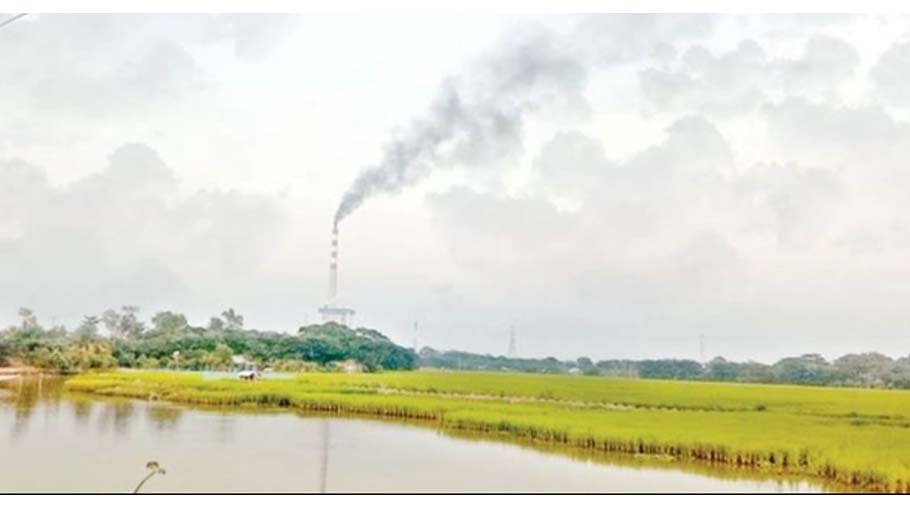How a power project brings peril for a Barguna village

Ankuzanpara, once a quiet and picturesque village in Taltali upazila of Barguna, now lies under a heavy blanket of smoke and sorrow.
The fresh air that once breezed through its trees and the crystal-clear river that sustained its people have become tainted — choked by toxic fumes and environmental decay.
Since the 307-megawatt coal-fired power plant began operations in the area, villagers say their lives have been engulfed by an inescapable shadow.
What was promised as a symbol of progress has turned into a source of disease, displacement, and despair.
“The government gave us electricity, but how will my daughter survive?” asked Idris Ali, holding his five-year-old daughter Samia who suffers from painful skin conditions.
Her frail body is marked with red patches — a condition her family cannot afford to treat.
“We used to breathe fresh air. Now, it’s filled with poison. And nobody in the administration seems to care,” he said.
Environmental and health experts have raised concerns over the alarming increase in pollutants like sulfur dioxide and particulate matter in the air, which are triggering respiratory issues and skin diseases.
A doctor at Taltali Upazila Health Complex said cases of skin disease and asthma have doubled in the last two months.
“We’re seeing an unusual spike in respiratory and dermatological issues,” the doctor said, requesting anonymity.
But it’s not just people suffering. Nature, too, is bearing the brunt.
“There are no fish left in the river,” said fisherman Monirul Islam.
“Whenever we throw our nets, all we get is waste and dead fish. The smoke and contaminated water are killing everything.”
Farmers said their crops aren’t growing well anymore.
“The trees are dying, and we feel weak due to constant exposure to polluted air. This land used to be our life — now it feels like a curse,” said a farmer.
Dr Mir Mohammad Ali, a faculty member of Sher-e-Bangla Agricultural University’s Faculty of Fisheries and Marine Science, warned that toxic substances such as aluminum, methane, sulfur dioxide, and heavy metals from the plant are seriously degrading water quality in rivers and the Bay of Bengal.
Corruption in land purchase eats away Tk 390 crore in 3 power projects, says TIB
“These pollutants disrupt aquatic biodiversity and the life cycle of fish. If this continues, it could harm food security and the economy of the entire coastal belt,” he said.
Environmental activist Mostafizur Rahman believes the project was initiated without proper consideration of the local ecology and population. “Everyone — from government officials to scientists to locals — knew the risks. Still, they went ahead. And now, this so-called light has come at a devastating cost.”
Md. Arifur Rahman, the Taltali coordinator of the environmental group “Dharitri Rokkhai Amra (We for Saving the Earth)”, said they have repeatedly protested, formed human chains, and submitted petitions — all have gone in vain.
“We’ve warned that coal-fired power generation poses grave risks to both humans and aquatic life,” he said.



